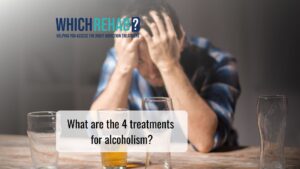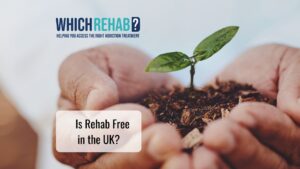What is Heroin?
Heroin is an opioid drug made from morphine, a natural substance taken from the seed pod of the various opium poppy plants.
Heroin is an illegal, highly addictive drug processed from morphine, a naturally occurring substance extracted from the seed pod of certain varieties of poppy plants.
Heroin is a very addictive drug made from morphine, a psychoactive (mind-altering) substance taken from the resin of the seed pod of the opium poppy plant. Heroin’s colour and look depend on how it is made and what else it may be mixed with. It can be white or brown powder, or a black, sticky substance called “black tar heroin.” It can be mixed with water and injected with a needle. Heroin can also be smoked or snorted up the nose. All of these ways of taking heroin send it to the brain very quickly. This makes it very addictive.
ARE YOU SUFFERING FROM HEROIN ADDICTION?
Our team of rehab and addiction specialists are on hand to talk to you day or night. Let us help you take back control.
Is Heroin Addictive?
Yes, heroin is very addictive.
Heroin enters the brain quickly, causing a fast, intense high. Using heroin repeatedly can cause people to develop tolerance to the drug, this means they need to take more and more of it to get the same effect. Eventually, heroin addicts may need to keep taking the drug just to feel normal. For those who use heroin over and over again, addiction is more likely. Once a person becomes addicted to heroin, seeking and using the drug often becomes the main goal guiding their daily behaviour.
Is It Possible To Overdose On Heroin?
Every single use of heroin carries the risk of overdose, either as the dose was too strong or taken too soon after the last fix. Symptoms include loss of consciousness, a weakened pulse, shallow breaths, spasms or twitching, and a blue tinge to the mouth and/or fingertips. A large dose of heroin depresses heart rate and breathing to such an extent that a user cannot survive without medical help.
How can a heroin overdose be treated?
Heroin overdoses can be treated with a variety of medical interventions, including medications and supportive care. The most important first step is to call for medical assistance if someone is believed to have overdosed on heroin. When emergency personnel arrive, they will assess the person’s vital signs, including their breathing and heart rate, and administer oxygen if needed.
Medication treatment for heroin overdose typically involves a medication called naloxone, which is an opioid antagonist. Naloxone works by reversing the effects of opioids on the brain and restoring breathing within a few minutes. Other supportive care measures may also be taken, such as providing fluids intravenously and monitoring vital signs.
Symptoms of Heroin Addiction
The following are among the most common psychological, physical and social signs and symptoms that may indicate that a person has been abusing or has become dependent upon heroin:
Psychological symptoms of heroin addiction:
- Feelings of shame, guilt and depression
- Hopelessness and despair
- Impaired ability to concentrate or focus
- Poor judgment
- Confusion and disorientation
- Extremely low self-esteem and sense of self-worth
- Mood swings
- Angry outbursts
- Inability to stop thinking about when, where and how you will be able to obtain your next ‘fix'
Physical symptoms of heroin addiction:
- Significant unintentional weight loss
- Exhaustion and lethargy
- Watery eyes and runny nose
- Persistent flu-like symptoms
- Constipation
- Bruising or scabbing of the skin
- Sleep problems
- Damage to the kidneys and liver
- Hepatitis C and HIV/AIDS
Social symptoms of heroin addiction:
Although slightly more uncommon, Pregabalin addiction can result in more serious side effects.
These serious side effects and their symptoms can include the following:
- Withdrawal from family and friends
- Associating with a new peer group
- Drastic mood swings and unprovoked outbursts of anger
- Strained or ruined relationships
- Job loss and unemployment
- Legal problems including arrest and imprisonment
- Financial difficulties
- Social isolation
Heroin Addiction Withdrawal Symptoms
When someone is addicted to heroin and stops using it, he or she may experience extremely uncomfortable and painful withdrawal symptoms, which is why it is so hard to quit.
Heroin users not only become physically dependent on the substance but are also afraid to stop using for fear of the symptoms they may experience when they stop using. Withdrawal symptoms from heroin can develop as soon as a few hours after sustained use.
Someone who is withdrawing from long-term heroin abuse and dependence on the drug is at high risk of serious medical complications and should seek professional medical professionals for help where they may be admitted to a drug rehab to receive the right treatment safely.
Withdrawal symptoms of heroin addiction typically include:
- Muscle and bone pain
- Cold flashes with chills
- Nausea and vomiting
- Diarrhoea
- Insomnia
- Restlessness
- Strong craving for the drug
- Sweating
- Anxiety
The symptoms of withdrawal from heroin typically start within the first four to 24 hours and peak within 36 to 72 hours. The amount of time withdrawal symptoms last depends on the frequency of use and severity of the addiction, as well as individual factors like your overall health.
BREAK FREE FROM ADDICTION
It can feel hopeless falling into the pit of addiction. Don't struggle alone, help is at hand.
Treatment Options For Heroin Addiction
A range of treatments including medicines and behavioural therapies are effective in helping people stop heroin use and overcome opioid addiction. It’s important to match the best treatment approach to meet the particular needs of each individual patient.
There are 3 different approaches to helping you stop and recover from a heroin addiction. These include maintenance therapy or detox and rehab.
Maintenance therapy is where a heroin user will switch from heroin to a heroin substitute such as methadone and then stay on a stable dose of the substitute.
Detox is where you will switch from heroin to a heroin substitute before gradually withdrawing from the substitute through a detox process so that you are completely free from both.
Rehab is where you will attend an inpatient or outpatient facility and follow a specialist treatment plan tailored to your specific needs to address the triggers of your heroin addiction and work on coping mechanisms to combat your addiction.
Heroin Detox
Detox is the first step towards overcoming heroin and is highly recommended to detox under the supervision of professionals who are trained and can monitor you through the process of a heroin detox. A drug detox is designed to remove all traces of heroin from your body, whilst managing the unpleasant withdrawal symptoms that you will likely experience when you no longer have heroin in your system. Once the physical side of the drug addiction has been managed you will then be ready to commence with a rehab programme that will tackle the underlying psychological issues that fuelled your addiction.
Inpatient rehab
Private inpatient rehab includes counselling and evaluation with the added benefit of aftercare once you have completed your treatment plan. During inpatient treatment, you will experience rehab in an accommodated facility that protects you from the triggers and distractions of the outside world whilst accessing intensive professional therapy which addresses the underlying causes that led to your addiction. While a heroin drug detox addresses your body’s dependence on heroin, inpatient rehab will address the mental and emotional side of your addiction and is statistically the best long-term treatment option available. Each individual treatment plan is designed to help modify the patient’s expectations and behaviours related to heroin use and to increase skills in coping with various life stressors.
GET CONFIDENTIAL HELP NOW
Book your free confidential consultation call to discuss rehab options in Birmingham
FAQs
When it comes to addiction, there is no single answer to the question of whether heroin is more addictive than nicotine. Both substances are extremely addictive and carry serious risks.
When it comes to physical dependence, heroin is considered more addictive than nicotine due to its immediate effects on the brain. Heroin binds to opioid receptors in the brain, which triggers a surge of dopamine and other endorphins. This creates a powerful feeling of euphoria and is highly reinforcing, making it difficult to conquer the drug addiction without professional help.
On the other hand, nicotine acts on the brain over time, creating a physical dependence that can be more difficult to break than heroin.
There are several different types of heroin that vary in purity, strength, colour, and consistency.
White heroin
White heroin, also known as “Chinese White” or “Number 4,” is a highly addictive and potent form of heroin. It is sometimes referred to as Chinese White because of its origin in Southeast Asia. White heroin is derived from morphine and can be snorted, smoked, or injected. Its effects are similar to those of other forms of heroin but because it has a greater potency, the effects
Black tar heroin
Black tar heroin is a form of illicit heroin that looks like a black, sticky substance. It has an extremely high potency and addictive potential. The effects of black tar heroin are more intense than other forms of the drug, as it is usually injected directly into the bloodstream. This type of heroin is incredibly dangerous due to its strength and potential for overdose and death.
The most common route of administration for black tar heroin is injection, but it can also be smoked or snorted.
Brown heroin
Brown heroin is an illegal drug made from morphine, a natural substance taken from the seed pod of opium poppy plants. Brown heroin is sometimes referred to as “black tar” due to its dark colour and sticky consistency. It’s also known as Mexican mud, brown sugar, and horse china.
Brown heroin is the most commonly used form of heroin in North America and is typically cheaper than other forms. It’s usually injected, but it can also be smoked or snorted. Brown heroin is highly addictive and carries a high risk of overdose.
Heroin is an extremely addictive and dangerous drug that can lead to physical and psychological dependence in as little as two weeks. While the exact timeline of addiction varies from person to person, most people can become addicted after using heroin for just one or two times.
When someone uses heroin, it triggers their brain’s reward system, which releases dopamine, a chemical that creates pleasurable feelings. Regular use of heroin leads to changes in the brain’s reward system, which makes it difficult for someone to stop using without help. Over time, their body and brain become dependent on the drug, leading to addiction.
Heroin addiction can have devastating effects on the user’s life, including strained relationships, financial difficulties, and health problems. It is important to seek help as soon as possible in order to prevent further damage. Treatment for heroin addiction typically consists of an individualized plan that includes medical detoxification, behavioural interventions, and relapse prevention strategies. Medical detoxification helps the user manage withdrawal symptoms in a safe and comfortable way, while behavioural interventions help them to identify triggers related to opioid addiction and develop healthy coping skills.
The long-term physical effects of heroin addiction include increased risk of heart problems, lung disease, digestive issues, kidney disease, and weakened immune systems. In addition to these more immediate physical dangers, prolonged use of heroin has been linked to an increased risk of developing certain types of cancers.
Heroin addiction can also lead to a number of mental disorders including depression, anxiety, and even psychosis. People who are addicted to heroin may also find it difficult to concentrate or think clearly. Much like other addictive substances, prolonged use of heroin can also cause changes in brain chemistry that make it harder for the person to feel pleasure from activities other than using drugs.





